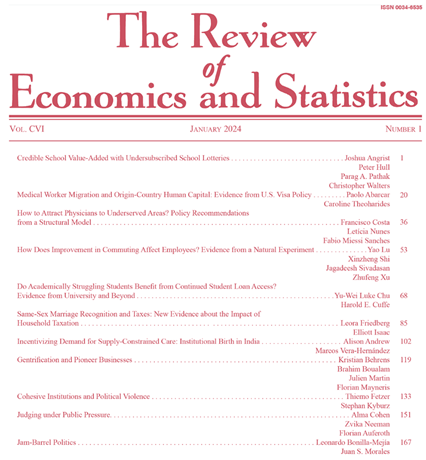Assessment of Digital Activity of the Population in the Context of the Theory of Generations
IF 6.8
1区 经济学
Q1 ECONOMICS
引用次数: 0
Abstract
Purpose of the study. Digital reality dictates the need to develop a new block of competencies - digital skills. For employment and subsequent career growth, knowledge of computer technology, programming skills and the use of software are of high importance. For a high-quality daily life of different age categories of the population, competencies in the use of personal computers, the Internet and other types of ICT are required. In the context of the rapid expansion of the Internet audience, it is of particular interest to assess the activity of the population in the digital space and analyze the purposes of its use. The materials of the article touch upon the theory of generations, which reveals patterns in the behavior of people born in the same time intervals. Representatives of different generations under the influence of economic, political, social and cultural factors form their own values and perception of the world. Which, ultimately, will require the adaptation of both the consumer goods and services market and the labor market to the characteristics of representatives of each generation. This predetermines the need to study the specifics of the use of the digital environment by representatives of the designated economically active generations.Materials and methods. The information base of the study was the data of the Federal State Statistics Service for 2012–2019, as well as the results of sample surveys of households on the use of ICT. As a tool for assessing the digital behavior of representatives of economically and socially active generations, statistical methods were used: comparative analysis and analysis of time series.Results. The age structure of the population of the Russian Federation is represented by the following generations: the baby boomer generation, generations X, Y and Z. The share of these economically and socially active generations is 95% of the total population of the country. The share of the greatest and silent generations is 5%. Each generation has its own patterns of behavior. Comparative characteristics of the features of the use of the digital environment led to the conclusion that for all generations the priority goals of using the Internet are communications and personal interaction. The main differences are manifested in the specifics of actions performed by representatives of the generations under consideration on the Internet and consumer preferences for goods and services presented on different digital platforms. At the same time, representatives of generation Z have a higher level of digital skills compared to representatives of other generations. The results of the study are of interest to business representatives when developing strategic directions for interacting with consumers and subsequently involving a significant part of society in the online space.代际理论背景下的人口数字活动评估
研究目的:数字现实要求我们发展一种新的能力——数字技能。对于就业和随后的职业发展,计算机技术知识,编程技能和软件的使用是非常重要的。要让不同年龄组别的市民享有高质素的日常生活,必须具备使用个人电脑、互联网及其他资讯及通讯科技的能力。在互联网受众迅速扩大的背景下,评估人口在数字空间中的活动并分析其使用目的是特别有趣的。文章的材料涉及代际理论,它揭示了在同一时间间隔出生的人的行为模式。不同世代的代表在经济、政治、社会和文化因素的影响下,形成了自己的价值观和对世界的看法。最终,这将要求消费品和服务市场以及劳动力市场适应每一代人的特点。这预先决定了需要研究指定的经济活跃世代的代表使用数字环境的具体情况。材料和方法。该研究的信息基础是联邦国家统计局2012-2019年的数据,以及对家庭使用信息通信技术的抽样调查结果。作为评估经济和社会活跃世代代表的数字行为的工具,使用了统计方法:比较分析和时间序列分析。俄罗斯联邦人口的年龄结构由以下几代人代表:婴儿潮一代,X世代,Y世代和z世代。这些经济和社会活跃的世代占该国总人口的95%。最伟大和沉默的一代所占的比例是5%。每一代人都有自己的行为模式。通过对数字环境使用特征的比较,得出了这样的结论:对于所有世代的人来说,使用互联网的首要目标是通信和个人互动。主要差异表现在被考虑的代际代表在互联网上的具体行为以及消费者对不同数字平台上呈现的商品和服务的偏好。与此同时,与其他几代人相比,Z世代的代表拥有更高水平的数字技能。这项研究的结果对企业代表在制定与消费者互动的战略方向以及随后在网络空间中涉及社会的重要部分时很有意义。
本文章由计算机程序翻译,如有差异,请以英文原文为准。
求助全文
约1分钟内获得全文
求助全文
来源期刊

Review of Economics and Statistics
Multiple-
CiteScore
8.50
自引率
0.00%
发文量
175
期刊介绍:
The Review of Economics and Statistics is a 100-year-old general journal of applied (especially quantitative) economics. Edited at the Harvard Kennedy School, the Review has published some of the most important articles in empirical economics.
 求助内容:
求助内容: 应助结果提醒方式:
应助结果提醒方式:


